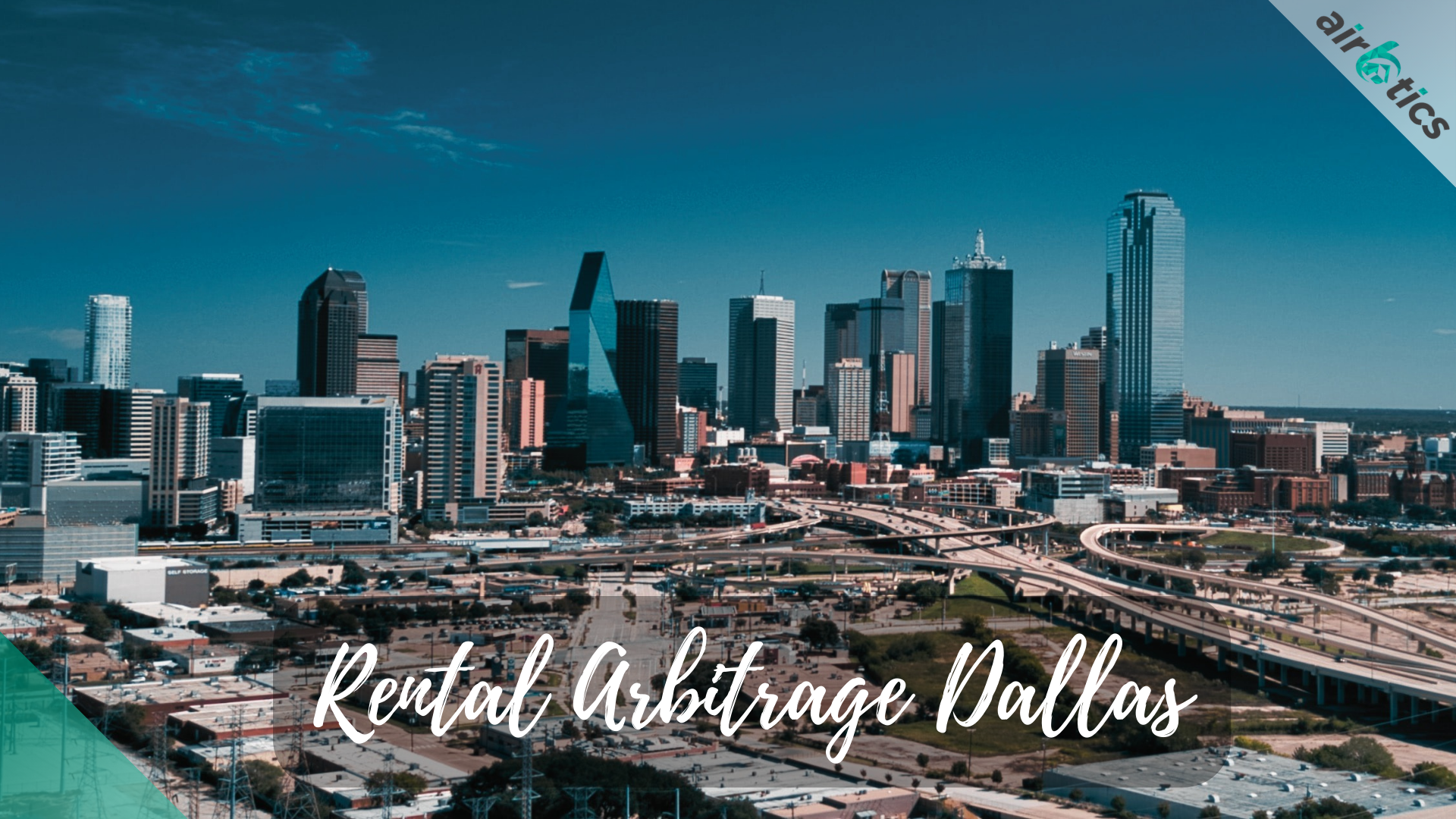Cape Town Airbnb Regulations is a complete guide that will provide you with an overview of the rules and get you started on your journey.
Home > Resources > Airbnb Rules >

Cape Town Airbnb Regulations is a complete guide that will provide you with an overview of the rules and get you started on your journey.
- Last updated on
- August 7, 2023
Is Airbnb legal in Cape Town?
The answer is yes! A by-law has been formally adopted by the City of Cape Town making it easier for residents to rent out their properties on Airbnb.
Currently, there are 3,311 Airbnb listings in Cape Town, with 39,1% of entire houses earning up to $1,460 a month, 5,7% managed by professionals, and 30,4% managed independently. Apart from complete houses, Cape Town’s Airbnb offerings include 6,2% of private rooms. According to short-term rental data source Airbtics, a 2-bedroom apartment in Cape Town can make up to $14,592 each year.
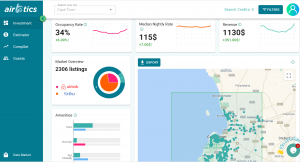
Here we will provide some useful information that can help you better understand the Cape Town Airbnb Regulation.
Short-Term Rentals Laws
- New city planning bylaws permit a range of homeowners to rent out their homes on a short-term basis
- The land-use amendment allows the short-term leasing of a house or apartment for a maximum of 30 days for the same guest
- Before the amendments, only single-family homes were eligible for short-term rentals
- In addition to single-family homes and apartment buildings, the new rule now applies to units contained within sectional title holdings
- The homeowner, however, must follow the conditions outlined by the body corporate or homeowners’ association
Cape Town Airbnb Regulations
- The City of Cape Town has adopted a bylaw that allows short-term rentals for up to 30 consecutive days from the same guest/traveler.
- Zoning is meaningless. The term “Airbnb” refers to “transient visitors,” and it has nothing to do with guest houses, bed and breakfasts, or hotels. It makes no difference whether your property is zoned Single Residential 1 or 2, or General Residential 1 or 2.
- If the conduct regulations of a Sectional Scheme need it or if the Constitution of an HOA governs the property, authorization from a Body Corporate may still be required.

The initial cost of starting Airbnb in Cape Town
Having an Airbnb listing can be a good way to make extra money, but being a host comes with its own set of problems. Offering a short-term rental comes with several expenses. It may affect your mortgage, as well as taxes and cleaning fees.
It is a good idea to consider all these prospective costs and real estate variables before diving in. We’ll go over some of the most typical and surprising expenditures associated with being an Airbnb host, such as:
Airbnb service fees
Airbnb hosts share the first cost you might expect. Once you get a reservation, Airbnb charges a 3% service fee. This may not seem like much, but if you rent your house on Airbnb many times a year, this cost can add up.
Supplies Needed
Your rented property will need fresh bedding, towels, linens, toilet paper, soap, and other amenities. To make your rental feel more like home, you’ll want to stock the fridge and pantry with at least a few foodstuffs.
It’s a good idea to secure your property with external cameras such as a video doorbell and hardwired or Wi-Fi weatherproof exterior cameras. Installing four higher-quality video cameras will set you back roughly $1,200.
Cleaning expenses
Cleaning is, of course, required when renting your house on Airbnb. While cleaning supplies are inexpensive, expect to spend several hours cleaning, vacuuming, mopping, and tidying up. You’ll need to use a cleaning service if you don’t want to do the work or won’t be available to do it. Each cleaning session might cost you more than $200.
You can pass these costs on to your guests in the form of an increased rental price or by adding a separate cleaning fee to your rental listing.
Insurance protection
Insurance coverage is the most expensive component of renting your house on Airbnb. You may be able to rent your house without having to buy extra coverage or incur extra costs if you have existing home insurance. But, you must notify your insurer in advance and get approval. For an extra fee, you may need to add a rider or endorsement to your existing policy.
The Airbnb Host Guarantee covers you for up to $1 million in damages to your home caused by your visitors (besides the security deposit). Yet, this coverage isn’t comprehensive. Wear and tear, personal liabilities, jewels, securities, cash, pets, collectibles, and rare artwork are all excluded.
Expenses of starting a business
For tax advantages, some experts tell incorporating your company. You may be able to protect your assets if sued by forming a corporation or limited liability company (LLC) as well as receive tax benefits from doing so.
But, depending on the state you live in, the charges of incorporating might be quite significant.
Mortgage expense
If you plan to refinance your home’s mortgage, renting out your home via Airbnb may cost you money. Because of this, your rental income may not be taken into account when refinancing your home. This would have an impact on your debt-to-income ratio, which could lead to a higher interest rate on your new loan.
Pros and Cons of running Airbnb in Cape Town
Short-term rentals are vacation rental properties rented out on a short-term basis to guests, like hotels. This form of rental helps guests to feel more at ease and “at home” because the properties are typically designed in this manner.
A long-term rental is the most common sort of rental property utilized for residential purposes. This sort of rental property is usually protected by a long-term lease agreement with more binding terms than a short-term rental. Renting out their homes for a higher price than their mortgage allows them to generate regular income regardless of the market. Because it is more traditional and well-known, most people are more familiar with this sort of rental property.
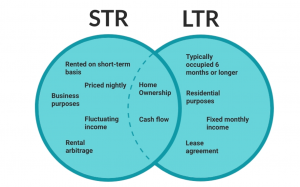
Now that we’ve defined vacation rentals and long-term rental properties, let’s look at each component of rental properties that explains both the benefits and drawbacks of a short-term or long-term rental.

Best areas to invest in Cape Town
There are some obvious places that come to mind when thinking of Cape Town like Camps Bay, Bantry Bay and Bloubergstrand. But two of the best areas for investment top our list. The first one is:
1. Higgovale
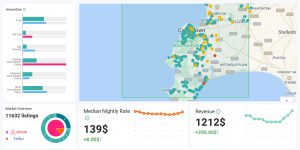
According to our Airbtics Dashboard, Higgovale is the top market to invest in Short-term Rentals. There are currently 9,992 Airbnb listings. Monthly revenue for most properties is more than $1,218/month with occupancy being more than 30%.
2. Flamingo Vlei
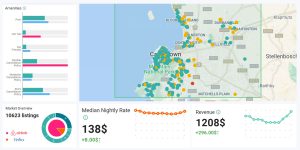 According to our Airbtics Dashboard, Flamingo Vlei is the second top market to invest in Short-term Rentals. There are currently 9,087 Airbnb listings. The monthly revenue for most properties is more than $1,208/month with occupancy being more than 29%.
According to our Airbtics Dashboard, Flamingo Vlei is the second top market to invest in Short-term Rentals. There are currently 9,087 Airbnb listings. The monthly revenue for most properties is more than $1,208/month with occupancy being more than 29%.
Conclusion
If you’ve made it this far, you’re thinking of starting an Airbnb.
We’ve been assisting folks like you, who are first-time Airbnb hosts. We don’t provide consulting since we aren’t experts in running Airbnb businesses; but, we do provide useful data to Airbnb hosts.
You may use the Airbtics dashboard to figure out how much money you can make doing Airbnb in your city. Unlike other online Airbnb income calculators, it will provide you with a lot more useful information, such as
-which neighborhood to target,
-which amenities are in high demand,
-what is the market’s historical performance,
-what are the occupancy rates of a two-bedroom house,
-should I do a two-bedroom house or a three-bedroom house?
In that case, the tool might be too complex for you, visit our tutorials – With the data dashboard, you can get meaningful and actionable insights.
Well, if you are new, there are many Airbnb host communities on Facebook. Type “Airbnb host” in the Facebook search, and you’ll see plenty of active communities where you can get help from experienced Airbnb hosts.
Short-Term Rental Data
-
Quick Links
Annual Airbnb Revenue in Morongo valley california, USA
Morongo Valley, California| Airbnb Market Data & Overview | USA Morongo Valley, California Airbnb Market Data & Overview USA Is it profitable to do Airbnb …
Annual Airbnb Revenue in La conner washington, USA
La Conner, Washington| Airbnb Market Data & Overview | USA La Conner, Washington Airbnb Market Data & Overview USA Is it profitable to do Airbnb …
Airbnb Rental Arbitrage in Dallas, Texas: Featuring an Airbnb host
rental arbitrage dallas Key Takeaways Rental Arbitrage is an excellent option for property investors who will sublet properties for a limited budget. It’s ideal for …
Annual Airbnb Revenue in Aliso viejo california, USA
Aliso Viejo, California| Airbnb Market Data & Overview | USA Aliso Viejo, California Airbnb Market Data & Overview USA Is it profitable to do Airbnb …
Annual Airbnb Revenue in Chicopee massachusetts, USA
Chicopee, Massachusetts| Airbnb Market Data & Overview | USA Chicopee, Massachusetts Airbnb Market Data & Overview USA Is it profitable to do Airbnb in Chicopee, …
Annual Airbnb Revenue in Gate city virginia, USA
Gate City, Virginia| Airbnb Market Data & Overview | USA Gate City, Virginia Airbnb Market Data & Overview USA Is it profitable to do Airbnb …


